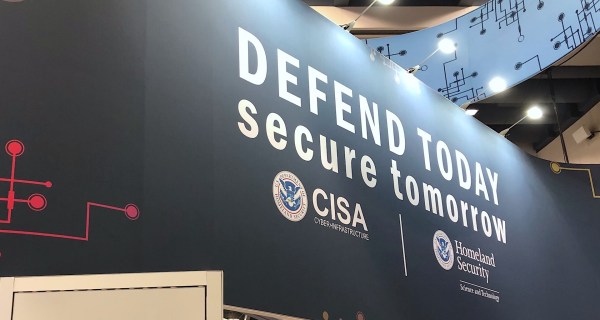Secretaries of state ask DHS to retain essential election security services

The National Association of Secretaries of State on Friday sent a letter to U.S. Department of Homeland Security Secretary Kristi Noem, noting a preference that she retain certain services used by state and local election officials to protect the nation’s critical elections infrastructure.
The request arrives as the former South Dakota governor — who prides herself in being the only state leader not to have accepted federal cybersecurity funding via the Infrastructure Investment and Jobs Act — evaluates further cuts to her department and its Cybersecurity and Infrastructure Security Agency.
The association, which includes members from secretaries of state and other top election officials in 40 states and territories, strikes a cooperative tone, first congratulating Noem on her appointment last month, and also requesting “official, ongoing, timely communications.”
Officials throughout state government, including several secretaries of state, have told StateScoop in recent weeks that they receive few updates from federal agencies, including DHS, about upcoming programmatic changes, and that they’re unclear on what will happen to the funding and technical support they receive. New Mexico Secretary of State Maggie Toulouse Oliver last week told StateScoop that she’s in a “difficult place” as she searches for a way to fund critical protections of her state’s election systems.
“Most of us are starting our legislative sessions,” she said. “Ours is very short in New Mexico and we didn’t even have the foreknowledge to be able to relay to our legislature that we were going to be losing out on a lot of these tools and resources.”
Pennsylvania Secretary of State Al Schmidt called it “foolish and inefficient” to remove federal support from state election efforts.
Acting CISA Acting Director Bridget Bean circulated an internal memo this month announcing a “review and assessment” of the agency’s misinformation efforts, before DHS eliminated about 400 positions, including more than 130 CISA staff.
The Elections Infrastructure Information Sharing and Analysis Center, meanwhile, lost a critical part of its cooperative agreement with DHS, which could mean the organization’s closure. The EI-ISAC, which is operated by the New York nonprofit Center for Internet Security, has distributed more than 1,000 Albert sensors, devices that help elections officials detect anomalous network activity, to state and local governments over the last several years.
NASS’s letter — signed by Minnesota Secretary of State Steve Simon, the group’s president, and Mississippi Secretary of State Michael Watson, its president-elect — notes that the nation’s elections systems were designated by DHS as critical infrastructure in 2017. They write that the services provided by DHS and CISA have for years helped election offices defend against “sophisticated cyber threat actors including nation-state and cybercriminal groups.”
The letter names seven services that secretaries of state have been using to protect the nation’s critical infrastructure, including cybersecurity services for election offices, physical security assessments for voting locations and election offices and support for the EI-ISAC, which the secretaries of state said “increase the situational awareness of election offices by notifying officials of cyber threats experienced in other states or jurisdictions.”
Other core services they ask Noem to retain include incident response planning resources and tabletop exercises, “on-the-ground” incident response report during active threats and cyberattacks, intelligence briefings, and the Election Infrastructure Government Coordinating Council and its meetings, which they said has a “unique structure [that] allows state and local election officials to provide meaningful input to ensure services are implemented effectively and address concerns about any potential federal overreach.”
President Donald Trump’s administration, meanwhile, has shown every sign of disbanding campaigns against foreign influence, including shutting down the government’s anti-misinformation efforts. During her confirmation hearing last month, Noem cited an interest in eliminating disinformation efforts, while focusing CISA on what she views as its core function.
“The misinformation and disinformation they have stuck their toe into and meddled with should be refocused back onto what their job is, and that is to support critical infrastructure and to help our local and small businesses and critical infrastructure at the state level to have the resources and be prepared for those cyberattacks they will face,” she testified.






